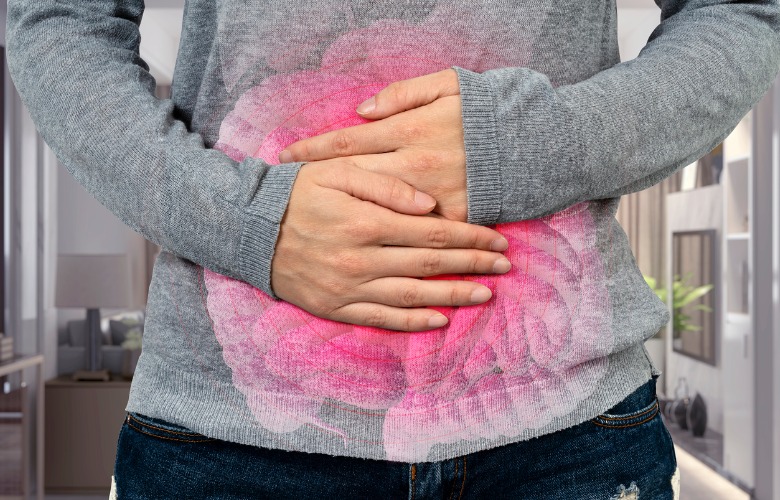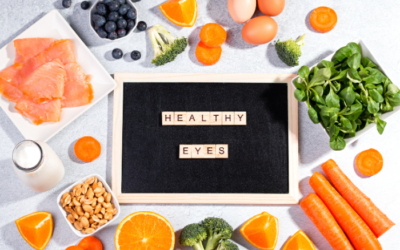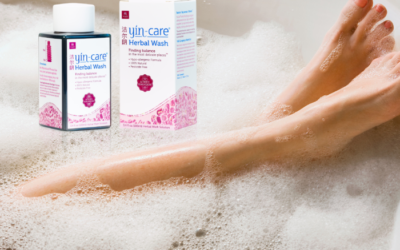PCOS and Gastrointestinal Issues
What is polycystic ovary syndrome (PCOS)?
Polycystic ovary syndrome, also known as PCOS, is a hormonal condition common in women of reproductive age. Due to the tendency to experience infrequent or prolonged menstrual cycles in addition to excess androgen (male hormone) in their bodies, women with PCOS ovaries may develop small follicles and their eggs may fail to regularly release.
The causes of PCOS include:
- High levels of androgens – also called male hormones, all women make small amounts of androgen. However, women with PCOS have more than average. High levels of androgen can prevent the ovaries from ovulating (releasing an egg) during a menstrual cycle
- High levels of insulin – the hormone that controls how your body turns food into energy. Many women with PCOS have insulin resistance (when your body’s cells do not respond to insulin). Those who are overweight, have an unhealthy diet, and do not exercise regularly are more likely to have higher levels. Also, a family history of diabetes plays a role.
- Genetics – Women with a mother, sister, or aunt with PCOS are more likely to have it.
- Inflammation – women with PCOS have a type of low-grade inflammation that stimulates androgen production, polycystic ovaries – this can lead to heart and blood vessel issues.
Symptoms of PCOS
- Irregular periods – irregular, infrequent, and prolonged menstrual cycles, ie. Fewer than 9 periods a year or more than 35 days between cycles and abnormally heavy periods.
- Ovaries are enlarged – polycystic ovaries can be enlarged and contain follicles around eggs.
- Excessive hair growth – also known as hirsutism – usually occurring on the face, chest, back, and buttocks
- Weight gain and difficulty losing weight
- Fertility issues – because of failure to ovulate or irregular ovulation
- Thinning hair and hair loss in the head
- Skin conditions such as oily skin and acne especially on the face, chest and upper back
- Skin tags – small excess flaps of skin
- Darkening of skin – especially in the groin, underneath breasts and along neck creases
Risks that women with PCOS may experience or develop
- Type 2 diabetes
- Gestational diabetes
- Depression
- Anxiety
- High blood pressure
- High cholesterol
- Heart disease
- Stroke
- Sleep apnea
- Endometrial cancer – cancer of the womb lining
- Miscarriage and premature birth
- Metabolic syndrome
- Eating disorders
- Abnormal uterine bleeding
- Nonalcoholic steatohepatitis

PCOS and IBS
A connection between PCOS and IBS or irritable bowel syndrome – women with PCOS have a higher prevalence of IBS. It was discovered that the “chronic intestinal condition affects 20% of adults, more often women” – of those women many had PCOS. Another study shows that 42% of women with PCOS also had IBS.
Irritable bowel syndrome symptoms
- Bloating
- Diarrhea
- Constipation
- Excess gas
- Abdominal pain
- Stomach cramping
- Mucus in stool
PCOS and your gut
SIBO – Small Intestinal Bacterial Growth
SIBO occurs when the gut bacteria that is supposed to only be in your large intestine – seeps or overgrows into the small intestine. 84% of people with IBS also experience SIBO. SIBO can lead to pain, diarrhea, and malnutrition because these bacteria will begin to use the body’s nutrients. Other symptoms of SIBO include:
- Bloating
- Cramps
- Constipation
- Indigestion
- The regular feeling of fullness
- Gas
Intestinal Dysbiosis
Your gut contains about 100 trillion microorganisms and they make up 70% of your immune system as well as control how much your body absorbs from food including calories, carbs, and nutrients. Studies show that 73% of IBS patients have intestinal dysbiosis which means that there is an overgrowth of bad bacteria, fungus, yeast, or that they don’t have enough good bacteria.
Leaky Gut
Also known as intestinal permeability, leaky gut is when the cells in your gut spread apart and allow your gut “leak” to larger molecules. Many people with IBS also have leaky gut.
The connection between PCOS and IBS
IBS symptoms are caused by too little “good bacteria” and too much “bad bacteria” but they also cause systematic inflammation and insulin resistance. The latter both increase male hormone androgen levels and can disrupt the menstrual cycle, prevent ovulation, and cause facial hair growth – all the pillar symptoms of PCOS.
Scientists think it works like this:
1 Your gut wall consists of tightly packed cells. They keep out large molecules (the cause of inflammation and immune activation) while letting in essential nutrients
2 Zonulin (a substrate) is released when there are too much bad bacteria and this causes gaps in the gut wall
The tightly packed cells loosen and allow large molecules that include gluten and LPS in (Lipopolysaccharide)
3 Your immune system is activated and inflammation begins
4 When inflammation becomes chronic is causes other issues
5 Inflammation can interfere with insulin receptors and cause insulin resistance
6 High levels of insulin cause your ovaries to produce too much testosterone
7 Too much testosterone disrupts the hormones that cause your menstrual cycle
8 This prevents ovulation which in turn the follicles that your eggs are in remain on the ovary
9 These are PCOS cysts
What are the next steps when you have IBS and PCOS?
While there is no test to see if you have IBS, there are ways of narrowing down the root cause of it. It isn’t as simple as adding probiotics to your diet – although that can help.
- Get a comprehensive stool analysis by a functional medicine practitioner
- Get a SIBO breath test
- Lactose intolerance test
- Upper endoscopy
- Your doctor will ask you to track your gastrointestinal symptoms – the criteria for IBS includes abdominal pain and discomfort lasting at least one day a week – in three months. Usually, these pains are connected with a bowel movement.
- Your doctor examines the lower portion of your colon
- Colonoscopy
Heal your gut
Add probiotic and prebiotic foods to your diet
In the effort to add more good bacteria to your gut and resolve the imbalance and inflammation
You can take a supplement or eat probiotic-rich foods including:
- Tempeh
- Fermented foods – sauerkraut, kimchi, kefir, miso, natto, buttermilk (traditional and cultured) and kombucha
- Cheeses – gouda, mozzarella, cheddar, and cottage cheese
- Pickled cucumbers and other vegetables
- Dandelion greens
- Bananas
- Onions

Temporarily eat a low FODMAP diet
FODMAPs are types of carbohydrates normally found in foods like wheat and beans. A Low FODMAP diet is meant to help relieve the symptoms that come from gastrointestinal issues like IBS while your gut heals.
FODMAP stands for “fermentable oligo-, di-, mono-saccharides and polyols” or rapidly fermentable, short-chain carbohydrates (FODMAPs). Many people’s diets include FODMAPs – such as monosaccharide (fructose), disaccharide (lactose), polyols, and oligosaccharides (fructans and galactans).
Studies show that 75% of people with IBS – a low FODMAP diet can help relieve symptoms including gas, bloating, diarrhea, constipation, and stomach pain.
It is a good idea to completely avoid high FODMAP foods including:
Fruits – watermelon, blackberries, apricots, apples, cherries, figs, nectarines, mangoes, prunes, plums, pears, and peaches
Vegetables – Brussel sprouts, cauliflower, cabbage, onions, snow peas, beetroot, garlic, leeks, fennel, mushrooms, okra, broccoli, asparagus, artichokes and shallots
Sweeteners – honey, agave nectar, fructose, high fructose corn syrup (HFCS), xylitol, mannitol, maltitol, and sorbitol
Dairy – most milk that is derived from animals, ice cream, pudding, yogurt, fresh cheeses, sour cream, and whey protein
Drinks – alcohol, sports drinks, and coconut water
Other foods: beans, lentils, hummus, whole grains, and nuts (especially cashews and pistachios)
Starting a low FODMAP diet can be difficult but it is well worth the benefits for both IBS and PCOS.
This diet has also been helpful for those with rheumatoid arthritis, multiple sclerosis, migraine sufferers, fibromyalgia, and eczema.
So what can you eat on a low FODMAP diet?
Vegetables – Alfalfa sprouts, bean sprouts, carrot, bell pepper, Bok choy, green beans, cucumber, tomato, lettuce, zucchini, eggplant, bamboo shoots, olives, ginger, chives, parsnips, potatoes, and turnips
Fruit – grapes, honeydew, cantaloupe, banana, oranges, strawberries, lime, lemon, kiwi, blueberries, and grapefruit
Dairy – lactose-free milk, hard cheeses, feta cheese, brie, and camembert soft cheese
Meat – beef, pork, chicken, fish, eggs
Soy – tofu, and tempeh
Grains – rice, oats, oat bran, rice bran, quinoa, cornflour, sourdough spelt bread, gluten-free bread, and gluten-free pasta
Nuts and seeds – almonds, macadamia, peanuts, pine nuts, walnuts
Other foods – almond milk, rice milk, coconut milk, tea, coffee
This diet is meant to be temporary, discuss with your doctor about how it is going along, if it is successfully healing your gut, and if your IBS and PCOS symptoms have lessened.
Once you start on a regular diet is a good idea to keep a food log to track IBS triggers or foods that your gut/gastrointestinal system doesn’t respond to well.
Other ways to help your PCOS symptoms
- Stay away from processed foods
- Stop drinking coffee – which has been linked to hormone behavior and estrogen levels
- Limit soy in your diet – which acts like an estrogen in your body
- Add supplements such as inositol, chromium, cinnamon, turmeric, zinc, cod liver oil, and evening primrose oil
- Add adaptogen herbs to your diet – maca root, ashwagandha, holy basil, licorice root, and chaste berry
- Maintain a healthy weight – this can help you decrease insulin resistance and regulate your period
- Exercise – try gentle low-impact activities like yoga, pilates, high-intensity interval training (HIIT), swimming and long-distance running so as not to disrupt your hormone balance
- Sleep – sleep is important for so many functions but sleep difficulties are twice as common in women with PCOS
- Stop stress – relaxing can regulate your stress hormone cortisol
- Stay away from endocrine disrupters – which include dioxins, phthalates, pesticides, BPA and glycol ethers

Jemile earned a degree in Food Studies and Writing and has worked for almost 23 years in the medical and health industries. She has been a digital marketing consultant for Acupuncture Atlanta since 2011 as the social media manager and content manager. Writing has been a childhood dream for Jemile and writing daily for clients in the health, wellness, food, and art industries have been phenomenal. Jemile is originally from Brooklyn, NY, and lives in the Hudson Valley, NY. She lives with her husband, two daughters, her dog, and two fish. You can contact Jemile via Linkedin, her mom blog, or her website, lunaroseconsulting.com



